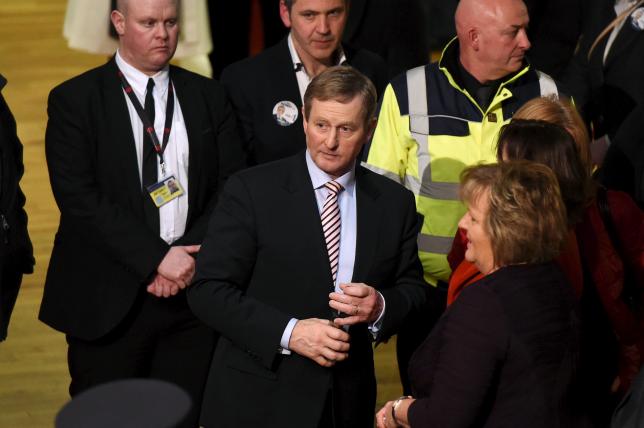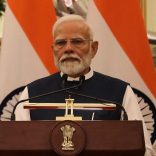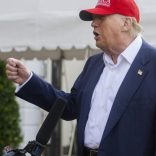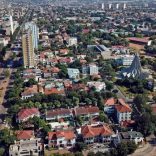Apple plays it safe on AI despite Wall Street pressure
Irish rivals drag out stalemate, say both trying to form government

Reuters / Irish Prime Minister Enda Kenny (C) departs the general election count at the count centre in Castlebar, Ireland February 27, 2016.
Ireland’s two biggest parties said on Monday they would each try to form their own government over the next 10 days, after an inconclusive election, a task analysts say will almost certainly fail and force them to contemplate an alliance many resist.
Irish bond yields were little changed after Friday’s election produced no clear winner but the threat of weeks of political stalemate and a possible second election could quickly change sentiment among investors.
After his ruling coalition was ousted by voters angry at the country’s uneven recovery, Prime Minister Enda Kenny’s Fine Gael was set to fall about 30 seats short of the 80 needed to form a majority in parliament, with vote counting drawing to a close.
“We need to look across a broad spectrum of the Dail (parliament) and see where we can find opportunities to discuss the formation of a government,” Foreign Minister Charlie Flanagan of Fine Gael told national broadcaster RTE.
Asked if that would eventually lead to a deal with rival Fianna Fail – the only combination analysts say will be able to break the impasse – Flanagan said “immovable positions” would not resolve the crisis.
Senior figures in both parties have expressed opposition, particularly Fianna Fail, which outperformed forecasts and will likely cut a deficit between it and Fine Gael to just a handful of seats from more than 50 in 2011.
Fianna Fail’s Billy Kelleher said his party would canvass support among a disparate group of small parties and independent lawmakers to put its leader, Micheal Martin, forward as an alternative prime minister when parliament resumes on March 10.
Two options
“Any kind of majority without each other is just not possible,” said Theresa Reidy, a politics lecturer at University College Cork. “There are only two options on the table – some kind of minority administration or coalition.
“The key question is how far Fianna Fail want to be integrated and I certainly don’t think we’re going to get any kind of government very soon, it’ll be 6 or 8 weeks before there is a sense of what shape it will take.”
Irish 10-year bond yields remained near record lows at 0.90 percent but traders have cautioned that investors would become more nervous the longer the instability lasts.
Analysts also believe Ireland’s economy can handle a degree of uncertainty, having grown around 7 percent last year and data on Monday showed that momentum remained strong with retail sales rising 10 percent year-on-year in January.
The head of one of Ireland’s largest insurers said political stability was needed to keep the economy on track.
“Stable government is what I would like to see and I’ve no doubt most business people asked that question this morning would say the same thing,” FBD chief executive, Fiona Muldoon, told reporters.
“Irish indigenous businesses have been through an awful lot over the last few years and I would not like to see what we have done so far taken for granted in what is a very uncertain macroeconomic environment globally.”












Leave a Reply
Be the First to Comment!
You must be logged in to post a comment.
You must be logged in to post a comment.